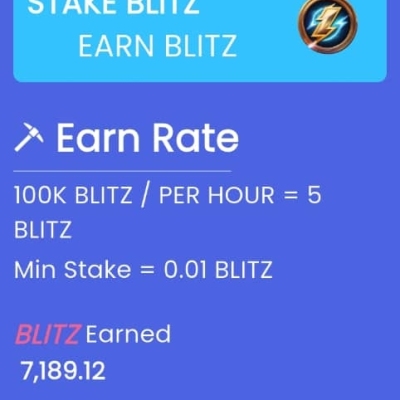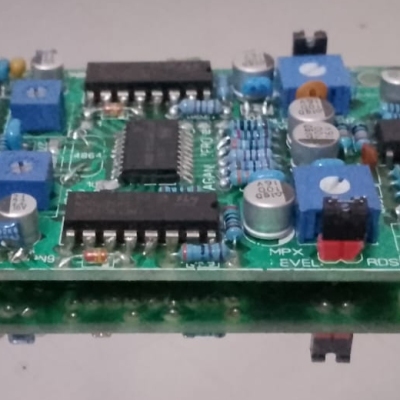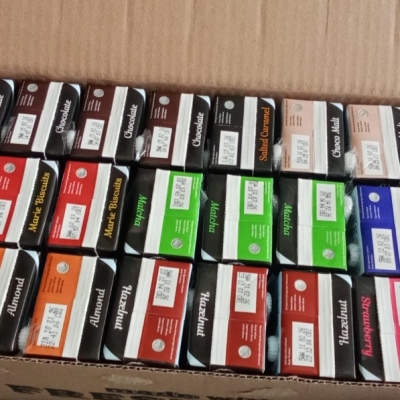The Developer-Driven Digital Revolution
The digital world is undergoing a significant transformation, led by the innovative efforts of developers who are rethinking how networks operate and how power is distributed. Decentralized networks have emerged as a powerful alternative to traditional centralized systems, offering a future with increased user control, transparency, and innovation. This exploration delves into the core components of decentralized networks, the challenges they face, and how Koii is uniquely positioned to address these issues while empowering developers.
The Surge of Decentralization
Recent years have seen explosive growth in the blockchain industry, with the global market expected to grow from $7.18 billion in 2022 to $163.83 billion by 2029, reflecting a remarkable CAGR of 56.3% (Imagination). This growth is largely driven by the adoption of decentralized networks across diverse sectors, including finance, healthcare, and supply chain management.
Core Elements of Decentralized Networks
At its essence, decentralization is about spreading control and decision-making across a network of nodes, rather than concentrating power in a single entity. This approach brings several key benefits:
Enhanced Security: Decentralized networks are more resilient to attacks and outages as they eliminate single points of failure.
Increased Transparency: All transactions and changes are visible to network participants, fostering trust and accountability.
Greater User Control: Individuals gain more influence over how their data is used and how the network evolves.
Smart Contracts: The Cornerstone of Decentralization
Smart contracts are self-executing agreements embedded within code, forming the foundation of many decentralized applications (dApps). Ethereum, the largest smart contract platform, had over 49 million smart contracts deployed by 2023 (AI & Blockchain Solutions). These contracts have enabled the development of decentralized finance (DeFi) platforms, non-fungible tokens (NFTs), and various other dApps, all fueled by developer innovation.
Developers: The Architects of Decentralized Networks
Developers are the driving force behind the decentralized revolution, creating, innovating, and iterating new ideas that propel the growth and evolution of these networks. However, they face significant challenges, including scalability, data management, trust, and energy efficiency.
The Scalability Challenge
As decentralized networks grow, maintaining speed and efficiency becomes increasingly challenging. For instance, Ethereum can handle about 15 transactions per second, far less than Visa's capacity of 24,000 transactions per second (Techopedia). This limitation has led to the development of Layer 2 solutions and alternative consensus mechanisms like Proof of Stake (PoS), which Ethereum has recently adopted to reduce energy consumption and increase scalability.
Koii’s Solution: Koii addresses scalability through its Succinct Curated Acyclic Ledger Extensions (SCALEs), which allow for efficient data management and archiving of large event streams without sacrificing performance. This innovation enables developers to build more complex and data-intensive applications while maintaining network efficiency.
Data Management and Storage Challenges
Managing data in decentralized networks is another critical issue. On platforms like Bitcoin and Ethereum, the growing size of the blockchain can make it difficult for nodes to store and process the entire ledger. Innovations like Bitcoin's Ordinals and Inscriptions have further increased the amount of data stored on-chain, raising concerns about long-term sustainability.
Koii’s Approach: Koii leverages underutilized consumer hardware to create a more distributed and cost-effective method for data storage. By utilizing the idle computational power of everyday devices, Koii allows developers to build decentralized applications that are scalable and sustainable without relying on traditional, centralized data centers.
Reputation and Trust Management
In decentralized networks, trust is decentralized, making robust reputation systems essential for ensuring participants act in good faith. Without such mechanisms, networks are vulnerable to exploitation and scams, which can undermine trust and participation.
Koii’s CARP System: Koii introduces the Compute Attribution and Reputation Protocol (CARP), which integrates reputation management directly into the network’s operations. CARP rewards developers and participants who contribute positively to the network, fostering a more secure and trustworthy environment for building and interacting.
https://bit.ly/3yqqpl0
Boring
This post has received widespread feedback from users for being monotonous and overly repetitive.













